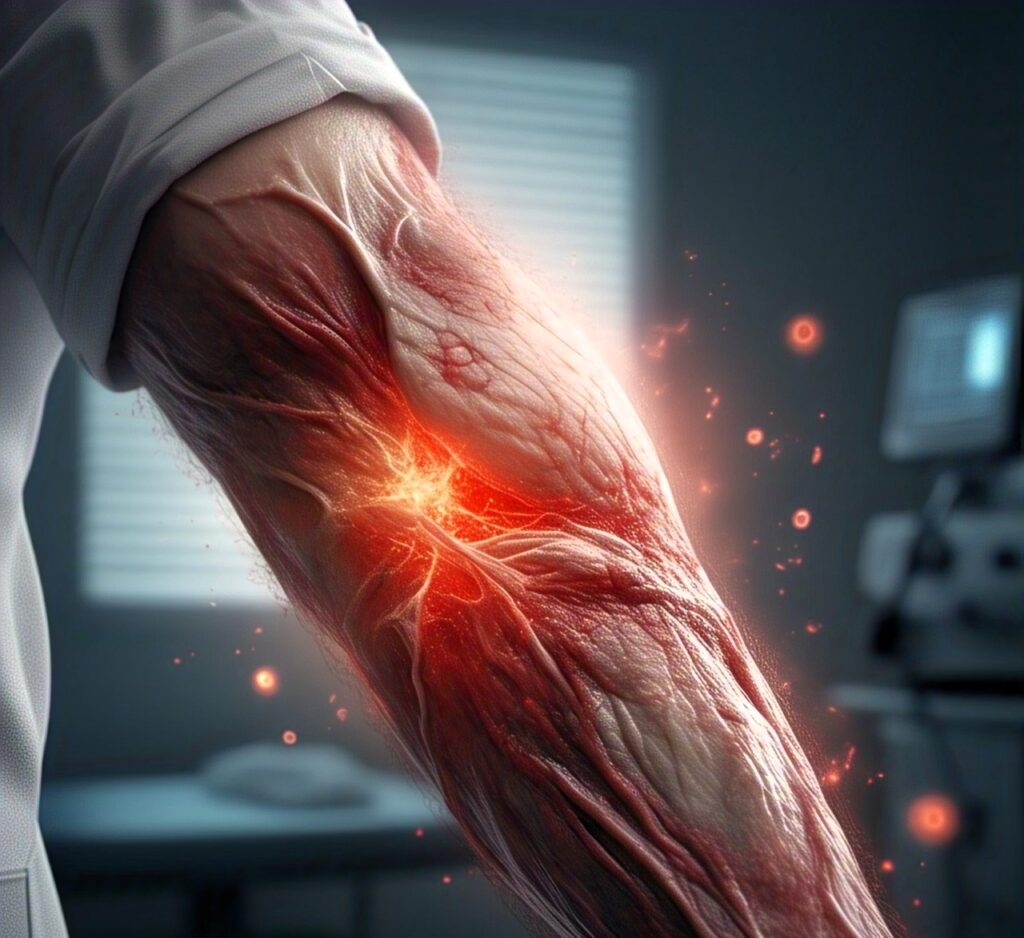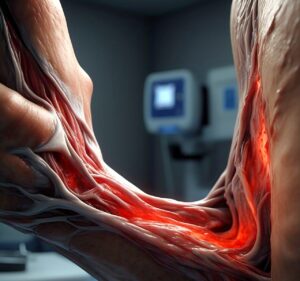Inflammation, Anti-Inflammation: Understanding the Condition, Symptoms, and Treatment in 2025
Inflammation is a natural response by the body’s immune system to injury or infection. It helps to protect the body by removing harmful stimuli and starting the healing process. However, chronic inflammation can lead to various health problems.
Inflammation is your body’s response to an illness, injury or something that doesn’t belong in your body (like germs or toxic chemicals). Inflammation is a normal and important process that allows your body to heal.

What is Inflammation?
Inflammation occurs when the body’s immune system detects an injury or infection. White blood cells are sent to the affected area to fight off the invader. This process causes blood vessels to dilate, leading to increased blood flow to the area. As a result, the affected area becomes red, swollen, and painful.
Types of Inflammation: Acute and Chronic
There are two main types of inflammation: acute and chronic.

Acute Inflammation
Definition: Acute inflammation is a short-term response to injury or infection.
Duration: It lasts for a few days to a few weeks.
Causes: Acute inflammation is caused by physical injury, infection, or allergic reactions.
Symptoms: Redness, swelling, pain, warmth, and loss of function.
Example: A cut on the skin, a sprained ankle, or a respiratory infection.
Chronic Inflammation
Definition: Chronic inflammation is a long-term response to ongoing injury or infection.
Duration: It lasts for months or even years.
Causes: Chronic inflammation is caused by persistent infections, autoimmune disorders, or exposure to toxins.
Symptoms: Fatigue, weight loss, joint pain, and digestive problems.
Examples: Rheumatoid arthritis, diabetes, or asthma.
Key Differences
Duration: Acute inflammation is short-term, while chronic inflammation is long-term.
Causes: Acute inflammation is caused by physical injury or infection, while chronic inflammation is caused by persistent infections or autoimmune disorders.
Symptoms: Acute inflammation causes redness, swelling, and pain, while chronic inflammation causes fatigue, weight loss, and joint pain.
Treatment: Acute inflammation is treated with rest, ice, and medication, while chronic inflammation is treated with medication, lifestyle changes, and alternative therapies.
In conclusion, understanding the difference between acute and chronic inflammation is crucial for effective treatment and management. While acute inflammation is a natural response to injury or infection, chronic inflammation can lead to various health problems if left untreated. By recognising the causes, symptoms, and treatment options for each type of inflammation, individuals can take steps to prevent and manage inflammation, promoting overall health and well-being.
Symptoms of Inflammation
Symptoms of inflammation vary depending on the affected area and the severity of the condition. Common symptoms include:
Redness and swelling
Pain or tenderness
Warmth or heat
Loss of function or mobility
Fever and chills
Causes of Inflammation
Inflammation can be caused by various factors, including:
Infections, such as bacterial or viral infections
Injuries, such as cuts or burns or trauma
Autoimmune disorders, such as rheumatoid arthritis or lupus
Allergies or sensitivities, such as allergic reactions to food or pollen
Infection or illness
Poor diet or lifestyle habits
Autoimmune disorders
Allergies
Lack of exercise
Stress
 Diagnosis of Inflammation
Diagnosis of Inflammation
Diagnosing inflammation typically involves a combination of physical examination, medical history, and laboratory tests. These tests may include:
Blood tests to check for inflammatory markers
Imaging tests, such as X-rays or MRI scans
Biopsy or tissue sample analysis
Diagnosing inflammation involves a physical examination and medical history. A doctor may also order tests, such as blood tests or imaging tests, to determine the cause and severity of the condition.
Treatment of Inflammation
Treatment for inflammation depends on the underlying cause and severity of the condition. Common treatments include:
Medications, such as nonsteroidal anti-inflammatory drugs (NSAIDS) or corticosteroids
Relaxation
Ice or heat therapy
Physical therapy
Lifestyle changes, such as diet and exercise modifications
Alternative therapies, such as acupuncture or massage
Effectiveness of Treatment
The effectiveness of treatment for inflammation varies depending on the underlying cause and severity of the condition. In general, treatment can help to reduce symptoms and improve quality of life.
Potential Side Effects of Treatment
Treatment for inflammation can have potential side effects, such as:
Medication side effects, such as stomach upset or drowsiness
Increased risk of infection
Weakened immune system
Inflammation is a natural response by the body’s immune system to injury or infection. While it can be beneficial in the short term, chronic inflammation can lead to various health problems. Understanding the symptoms, causes, and treatment of inflammation can help individuals to manage the condition and improve their quality of life.
Anti-Inflammation
Anti-inflammation refers to the process of reducing or preventing inflammation in the body. This can be achieved through various means, including:
Medications, such as anti-inflammatory drugs
Dietary changes, such as increasing omega-3 fatty acid intake
Lifestyle modifications, such as stress reduction and exercise
Alternative therapies, such as herbal supplements or mind-body practices
Natural Anti-Inflammatory Agents
Several natural substances have anti-inflammatory properties, including:
Turmeric and curcumin
Ginger and gingerol
Omega-3 fatty acids
Antioxidants, such as vitamins C and E
Probiotics and prebiotics
Benefits of Anti-Inflammation
Reducing inflammation in the body can have numerous health benefits, including:
Relieving pain and improving mobility
Reducing the risk of chronic diseases, such as heart disease and cancer
Improving mental health and mood
Enhancing overall well-being and quality of life
Conclusion
Inflammation is a natural response of the body’s immune system, but chronic or excessive inflammation can lead to various health problems. Understanding the causes, symptoms, and treatments of inflammation is essential for maintaining overall health and well-being. By incorporating anti-inflammatory agents and lifestyle modifications into daily life, individuals can reduce their risk of chronic diseases and improve their overall health.
Anti-Inflammatory Methods
There are several ways to reduce or prevent inflammation, including:
Medications: Non-steroidal anti-inflammatory drugs (NSAIDS) and corticosteroids can help reduce inflammation.
Diet: Eating a diet rich in fruits, vegetables, and whole grains can help reduce inflammation.
Exercise: Regular exercise can help reduce inflammation and improve overall health.
Stress reduction: Practising stress-reducing techniques, such as meditation or yoga, can help reduce inflammation.
Supplements: Certain supplements, such as omega-3 fatty acids and turmeric, have anti-inflammatory properties.
Foods that Reduce Inflammation
Some foods have anti-inflammatory properties and can help reduce inflammation. These include:
Fatty fish, such as salmon and sardines
Leafy greens, such as spinach and kale
Nuts and seeds, such as walnuts and chia seeds
Fruits, such as berries and citrus fruits
Whole grains, such as brown rice and quinoa
Foods that Increase Inflammation
Some foods can increase inflammation and should be avoided or consumed in moderation. These include
Processed meats, such as hot dogs and sausages
Refined sugars, such as candy and baked goods
Dairy products, such as milk and cheese
Fried foods, such as french fries and fried chicken
Foods high in saturated and trans fats, such as red meat and processed snacks
Conclusion
Anti-inflammation is an important aspect of overall health and can be achieved through a combination of medications, diet, exercise, stress reduction, and supplements. By understanding the causes and symptoms of inflammation and making lifestyle changes, individuals can reduce their risk of chronic inflammation and improve their overall health.
Sources
National Institute of Arthritis and Musculoskeletal and Skin Diseases. (2020). Inflammation.
American Academy of Family Physicians. (2020). Inflammation.
Mayo Clinic. (2020). Inflammation.
Disclaimer: The contents of this article are intended to raise awareness about common health issues and should not be viewed as sound medical advice for your specific condition. You should always consult with a licensed medical practitioner before following any suggestions outlined in this article or adopting any treatment protocol based on the contents of this article.
https://mrpo.pk/focused-mood-boosting-morning/

